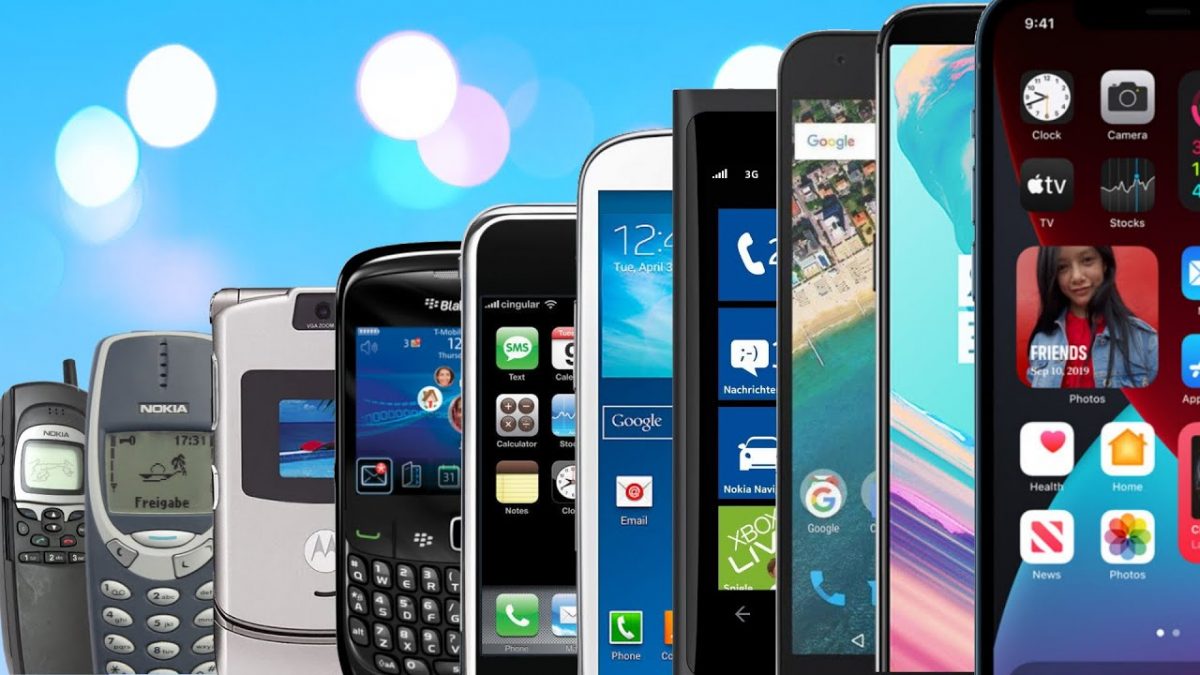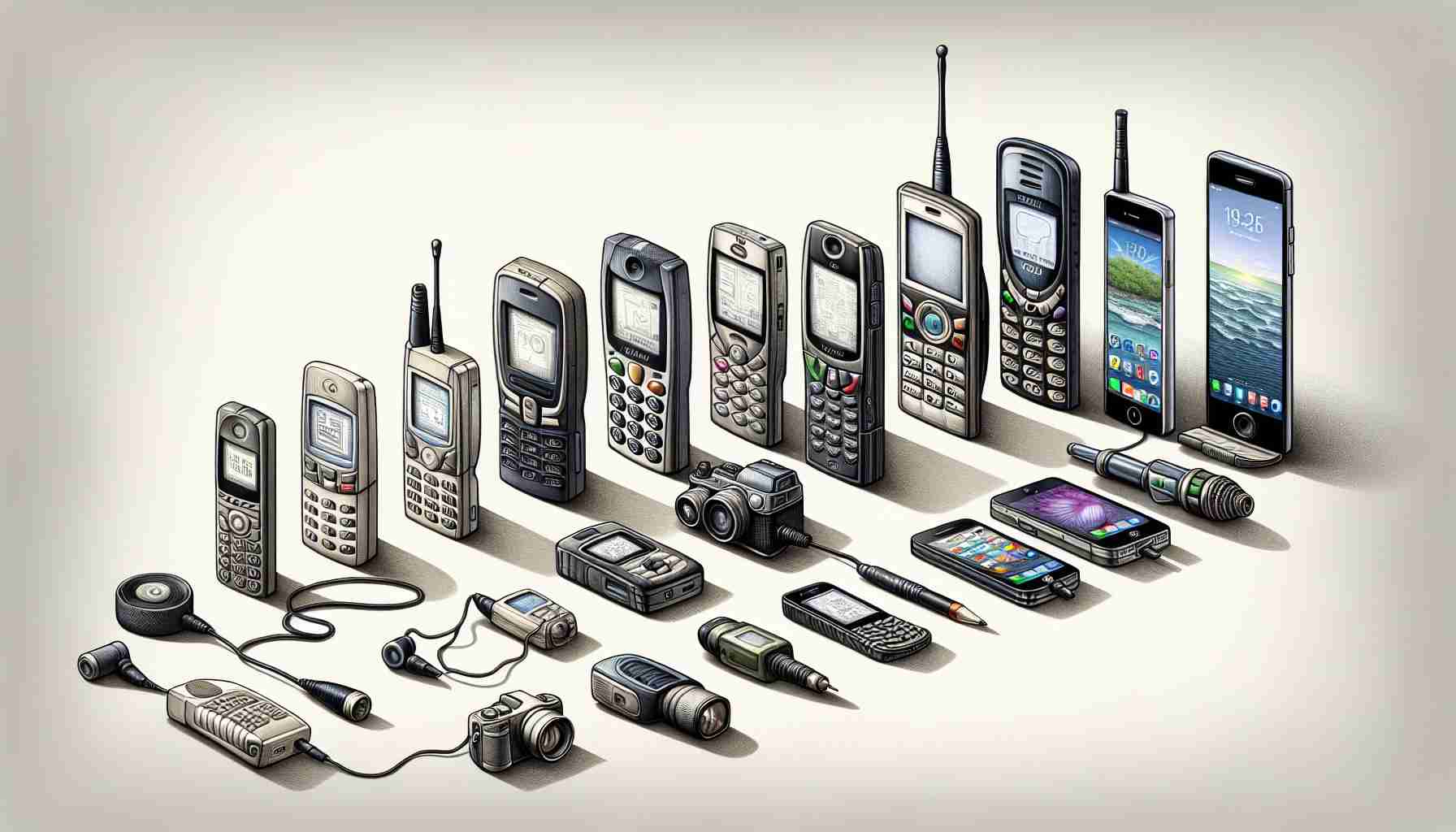🔥 How Cell Phones Changed the World | A Historical Journey
Introduction
Mobile phones have changed the way we communicate, work, and interact with the world. What started as a bulky, expensive device for the elite has now become an essential tool for nearly everyone. In this historical journey, we explore how mobile phones evolved over time, their impact on society, and what the future holds.
The Birth of Mobile Communication
The idea of wireless communication can be traced back to the early 20th century. However, the first real attempt to create a mobile phone came in 1973 when Martin Cooper, an engineer at Motorola, made the first-ever mobile call using the DynaTAC 8000X. The device was large, expensive, and had a battery life of only 30 minutes, but it marked the beginning of a new era in communication.
The Evolution of Mobile Phones
1G - The First Generation (1980s)
The 1980s saw the introduction of the first-generation (1G) mobile phones. These devices were analog-based and had limited coverage, making them accessible only to the wealthy. Phones like the Motorola DynaTAC became status symbols, but their functionality was limited to voice calls.
2G - The Rise of Digital (1990s)
During the 1990s, mobile phones transitioned to second-generation (2G) networks, which introduced digital signals. This allowed for better call quality, text messaging (SMS), and increased security. Nokia and Motorola dominated this era with compact, more affordable phones like the Nokia 3310, which became iconic for its durability and battery life.
3G - The Internet Revolution (2000s)
With the rise of third-generation (3G) networks in the early 2000s, mobile phones became more than just calling and texting devices. High-speed internet access enabled web browsing, emails, and multimedia applications. This era also saw the rise of BlackBerry, which introduced mobile email, and the early versions of smartphones.
4G - The Smartphone Boom (2010s)
The introduction of 4G networks in the late 2000s and early 2010s led to the widespread adoption of smartphones. Apple’s iPhone (first introduced in 2007) and Android devices revolutionized mobile technology, turning phones into mini-computers capable of running advanced applications, streaming videos, and facilitating high-speed browsing. The app economy flourished, with platforms like Facebook, Instagram, and WhatsApp transforming how people interact.
5G and Beyond - The Future (2020s and Beyond)
The latest development in mobile technology is 5G, which promises ultra-fast speeds, low latency, and the ability to support a massive number of connected devices. This is expected to revolutionize industries such as healthcare, gaming, and autonomous driving. Future advancements may include AI-powered smartphones, augmented reality (AR) integration, and even brain-computer interfaces.
1. Communication and Connectivity
Mobile phones have made communication instant and borderless. From voice calls and SMS to video calls and instant messaging, staying connected has never been easier. People can communicate in real time across the globe, bridging geographical gaps and fostering international relationships.
2. Business and Economy
The rise of mobile technology has dramatically changed the business landscape. Smartphones enable remote work, digital marketing, online banking, and e-commerce. Mobile applications such as Zoom, Slack, and Google Workspace have transformed how businesses operate, making remote collaboration seamless.
3. Social Media and Entertainment
The emergence of smartphones led to the explosion of social media. Platforms like Facebook, Twitter, Instagram, TikTok, and YouTube thrive because of mobile users. Entertainment has also been revolutionized, with streaming services like Netflix and Spotify providing on-demand content anytime, anywhere.
4. Education and Learning
Mobile phones have made learning more accessible. Educational apps, online courses, and digital libraries provide users with instant knowledge. Platforms like Khan Academy, Coursera, and Duolingo enable users to acquire new skills without traditional classrooms.
5. Healthcare and Emergency Services
Mobile technology has improved healthcare through telemedicine, health-tracking apps, and emergency response systems. Doctors can now consult patients remotely, and people can monitor their health with wearable devices that sync with their smartphones.
6. Political and Social Change
Mobile phones have played a crucial role in social movements and political activism. Instant access to news, live-streaming protests, and social media campaigns have empowered people to voice their opinions and mobilize for change. From the Arab Spring to global climate activism, mobile technology has been at the forefront of change.
Challenges and Concerns
1. Privacy and Security
As mobile devices become more advanced, concerns about privacy and security have grown. Data breaches, hacking, and unauthorized surveillance pose risks to personal information.
2. Digital Addiction and Mental Health
The overuse of smartphones has led to digital addiction, affecting mental health. Social media’s influence on self-esteem and attention spans has sparked debates on responsible technology use.
3. E-Waste and Environmental Impact
With rapid advancements, electronic waste (e-waste) has become a major concern. Discarded mobile phones contribute to pollution, making recycling and sustainable manufacturing crucial for the industry.
The Future of Mobile Technology
The future of mobile phones is promising, with innov
ations like foldable screens, AI-powered virtual assistants, and 6G networks on the horizon. As technology advances, mobile devices will continue shaping the world in unimaginable ways.
Conclusion
Mobile phones have come a long way from bulky, expensive devices to smart, multifunctional tools that have transformed our daily lives. Their impact on communication, business, education, and entertainment is undeniable. As we look forward to future innovations, one thing is certain: mobile phones will continue to shape the world in ways we have yet to imagine.







0 Comments